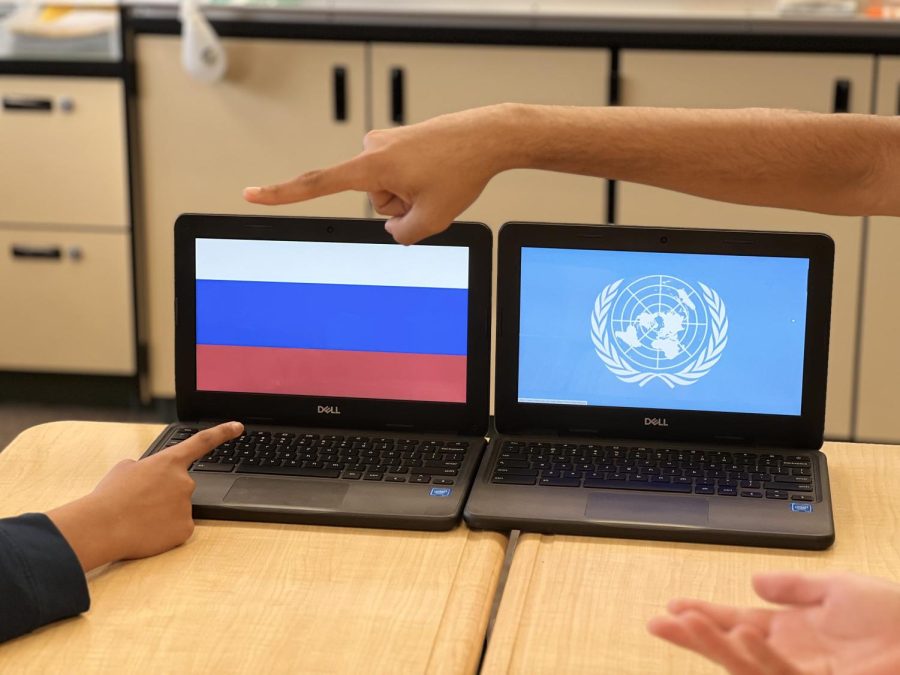UN votes on Russia-Ukraine conflict: what are the results and their significance?
The 2022 Russia-Ukraine conflict began with Russia’s military buildup and invasion of Ukrainian territory, escalating global tensions and causing a humanitarian crisis in Europe.
Having been over a year since the beginning of the Russia-Ukraine conflict, the UN recently adopted a resolution to end hostilities via a complete withdrawal of Russia’s military from Ukrainian territory. 141 countries voted in favor of this resolution, 7 voted against it, and 32 abstained.
The majority of UN members did support this, however, the resolution did not specify how it will be implemented. It was more focused on acknowledging the global impacts of war and acknowledged their commitment to Ukraine’s sovereignty.
“The UN resolution did not do much. It was more like a symbol of support from countries to Ukraine, but it was non-binding and it did not come with any action. It was great that so many countries came to support Ukraine, but there was no actual solution that was achieved,” said Model UN Member Ziyan Liu (‘24).
Maintaining close relations with Russia, Belarus proposed two amendments to the UN resolution, requesting member states to refrain from sending weapons and to address the root cause of the conflict. These proposals were later rejected and Belarus, among others such as North Korea, Mali, and Syria, voted against the resolution.
“The reason why Russia invaded Ukraine is NATO getting involved with European borders. This scares Russia, and the more we try to solve the issue by involving even more countries, the more we are at risk we are,” said Russian student Anita Gautam (‘24).
Notably, South Sudan switched sides from last year, now voting in favor of a resolution instead of abstaining because of the UN’s support in providing relief for the victims of its civil war. However, India, China, South Africa, and others, were some of the major nations that abstained from the vote, urging for the route of a mutually determined peace (and for talks to occur between Russia and Ukraine).
“If you look at it in terms of resources, developing countries such as India need this oil that Russia is giving very cheaply – for it greatly benefits developing countries. So far as I have seen, the Indian industry is booming with this oil. The stance should depend on the individual country,” said Dhanvanth Rajesh (‘25).
In conclusion, the UN resolution stands as a symbol of support for Ukraine’s sovereignty, but also underscores the deepening divide among global powers and Russia’s expanding influence in the developing world. The search for peace in Ukraine demands unwavering perseverance from the global community, for the dawn of a new era where harmony is evoked in an otherwise bleak situation.
Your donation will support the student journalists in the AVJournalism program. Your contribution will allow us to purchase equipment and cover our annual website hosting costs.

